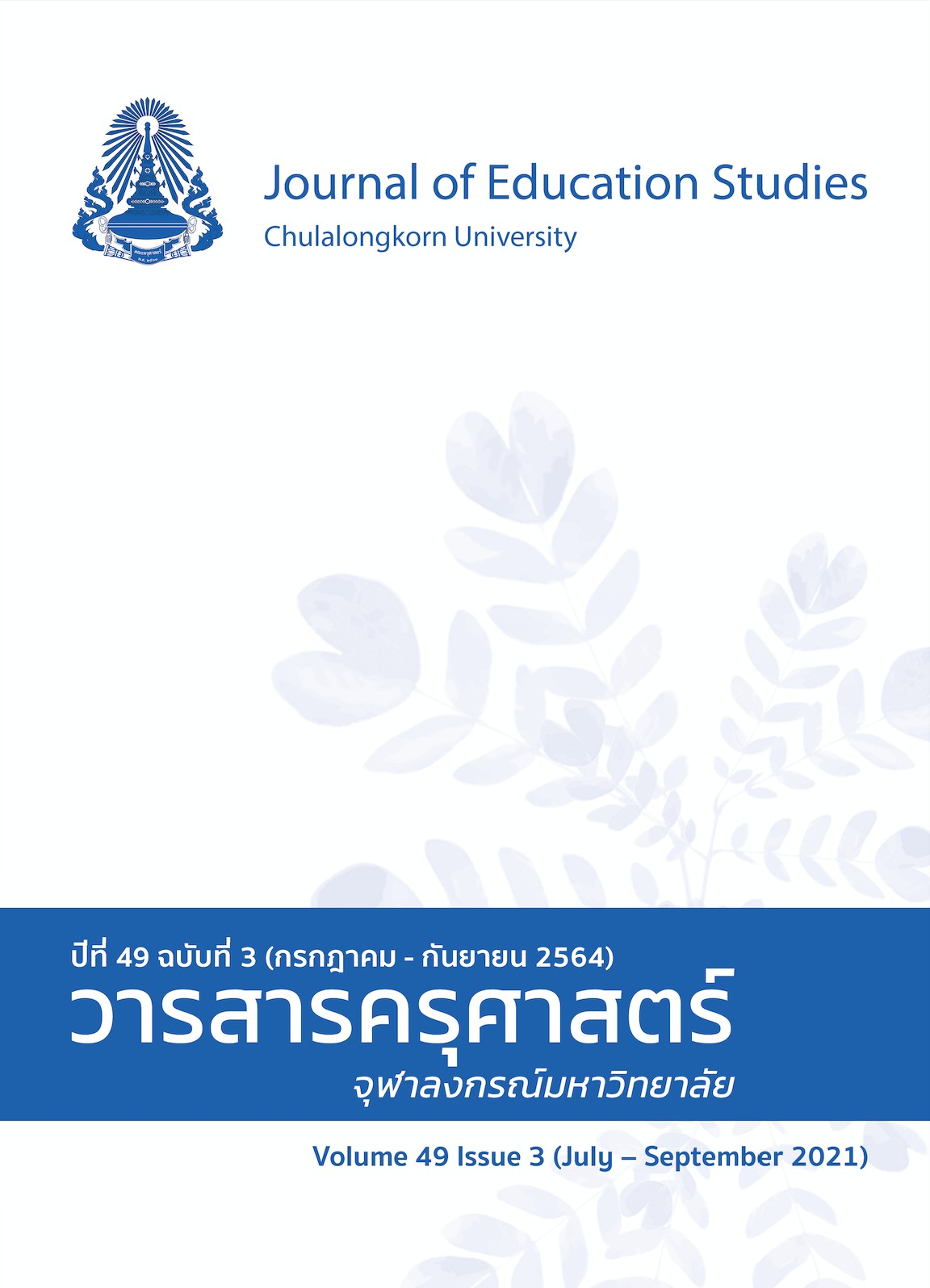Development of Non-Formal Education Activities Model for Teachers in Foundations for Disadvantaged Children
DOI:
https://doi.org/10.14456/educu.2021.56Keywords:
disadvantaged children, non-formal education, lifelong learning, children musicAbstract
The dramatic increased in number of disadvantaged children in Thailand has became the national concerns. These children has different needs than ordinary children. Foundations, charity organizations, were established to help these types of target group. Teachers who works in Foundations have important role in developing these children. This research has 3 objectives: (1) to find need analysis and characteristics of teachers in Foundations, and to find non-formal education activities for teachers (2) to develop non-formal activities for teachers in Foundations and (3) to come up with policy recommendations. The result founded that Foundation teachers are devoting to their work and children’s developments. However, they are lacking of skills in arranging specialized activities. (1) The needs analysis result found that the music arts and movements can help enhance children’s emotion and social skills. (2) The suggested activities model should be type of aesthetic experiences which consists of hands-on repeated actions with the cycle of Experiential Learning. These activities should be implied positivity and should be continuous over time, therefore the children’s brain could be developed properly accordingly. The repeated optimistic aesthetic experiences over time may result in children realizing the desired behavior. (3) For further development and practice, the activities should be suitable for types of disabilities, and focus on enhancing children’s social and emotion abilities. Systematic teachers’ development should be created. Lastly, special teachers’ learning center for teachers who teach disadvantaged children should be established.
References
กองทุนเพื่อความเสมอภาคทางการศึกษา. (2564). ข้อมูลจำนวนเด็กด้อยโอกาส / เด็กพิการ. https://isee.eef.or.th/screen/disabled/disabled.html
ผดุง พรมมูล. (2539). การพัฒนาโรงเรียนเข้าสู่มาตรฐานการศึกษา สุนทรียภาพทางศิลปวัฒนธรรม. กระทรวงศึกษาธิการ.
สร้อยดอกหมาก สุกกทันต์. (2563, 4 มีนาคม). ครูไทย (ก็) ไม่ไหว นักเรียน(ไท) จะไม่ทน เดินหน้าชนขอ ‘เปลี่ยน’ เมื่อระบบการศึกษาทำให้เราเจ็บปวด. มติชนออนไลน์. https://www.matichon.co.th/prachachuen/prachachuen-scoop/news_2025788
สำนักงานคณะกรรมการพัฒนาการเศรษฐกิจและสังคมแห่งชาติ. (2559). ข่าวเศรษฐกิจและสังคม เรื่องภาวะสังคมไทยไตรมาสสาม ปี 2559. สำนักงานคณะกรรมการพัฒนาการเศรษฐกิจและสังคมแห่งชาติ.
สำนักงานเลขาธิการสภาการศึกษา. (2560). แผนการศึกษาแห่งชาติ พ.ศ. 2560-2579. สำนักงานเลขาธิการสภาการศึกษา.
ภาษาอังกฤษ
Caine, R. N., & Caine, G. (1990). Understanding a brain-based approach to learning and teaching. Educational Leadership.
Kolb, D. (1984). Experiential learning: Experience as the source of learning and development. Prentice-Hall.
Maxwell, J. (1997). Designing a qualitative study. In L. Bickman & D. J. Rog (Eds.), Handbook of applied social research methods. SAGE.
Popham, J. W. (1997). What's wrong--and what's right--with Rubrics. Educational Leadership, 55(2), 72-75.
Downloads
Published
How to Cite
Issue
Section
License

This work is licensed under a Creative Commons Attribution-NonCommercial-NoDerivatives 4.0 International License.




